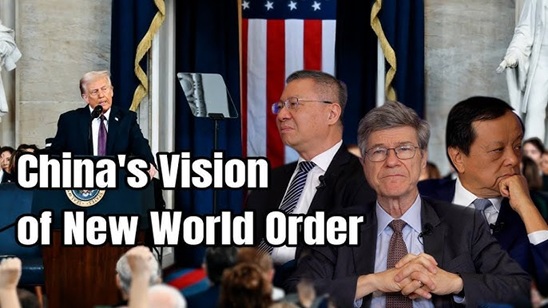
Introduction
This illuminating and timely discussion brings together three highly distinguished speakers, each bringing unique expertise and perspectives to the table: Professor Jeffrey Sachs, a renowned economist and professor from Columbia University known for his work in sustainable development and global economic policy; Charles Li, the accomplished former Chief Executive Officer of the Hong Kong Stock Exchange with deep insights into international financial markets; and Professor Zhang Weiwei, an influential Chinese political scientist and policy advisor. Together, these experts engage in a comprehensive analysis of China’s strategic positioning and the potential global ramifications that could emerge from Donald Trump’s possible return to the presidency in 2024, examining both challenges and opportunities in the evolving international landscape.
Video about the forum:
Key Discussion Areas
Trump’s Foreign Policy Outlook
- Trump’s approach emphasizes unilateralism and sovereignty over international agreements
- Less likely to engage in military conflicts compared to previous administrations
- More focused on economic tools (tariffs, embargoes) rather than military intervention
- Potentially more amenable to diplomatic relations with major powers like China and Russia
China-US Relations
- Potential for improved diplomatic engagement compared to Biden administration
- Key friction points remain: Taiwan and South China Sea
- Emphasis on mutual restraint and understanding core interests
- Technology and trade tensions, particularly regarding TikTok and digital platforms
Economic and Financial Developments
- Discussion of RMB internationalization and potential de-dollarization
- Hong Kong’s crucial role as a financial intermediary
- Digital currency development and implications
- Belt and Road Initiative’s continued importance
Chinese Strategic Approach
- Emphasis on long-term planning and strategic patience
- Focus on technological advancement and innovation
- Preference for negotiation over confrontation
- Balance between self-confidence and tactical humility
Technology and Social Media
- TikTok controversy and its implications for US-China relations
- Growing importance of digital platforms in cultural exchange
- Impact on younger generations’ cross-cultural understanding
- Role of technology in economic and social development
Conclusion
The discussion highlights the complex interplay between geopolitical, economic, and technological factors in US-China relations. While challenges remain, there are opportunities for improved diplomatic relations under Trump 2.0, particularly through direct leader-to-leader engagement and mutual understanding of core interests.
Key Takeaways
- Trump’s foreign policy likely to be less militaristic but more focused on economic measures
- China’s approach emphasizes strategic patience and technological advancement
- Hong Kong maintains crucial importance as a financial bridge
- Digital platforms and technology playing increasingly important role in international relations
- Need for balance between national interests and international cooperation


